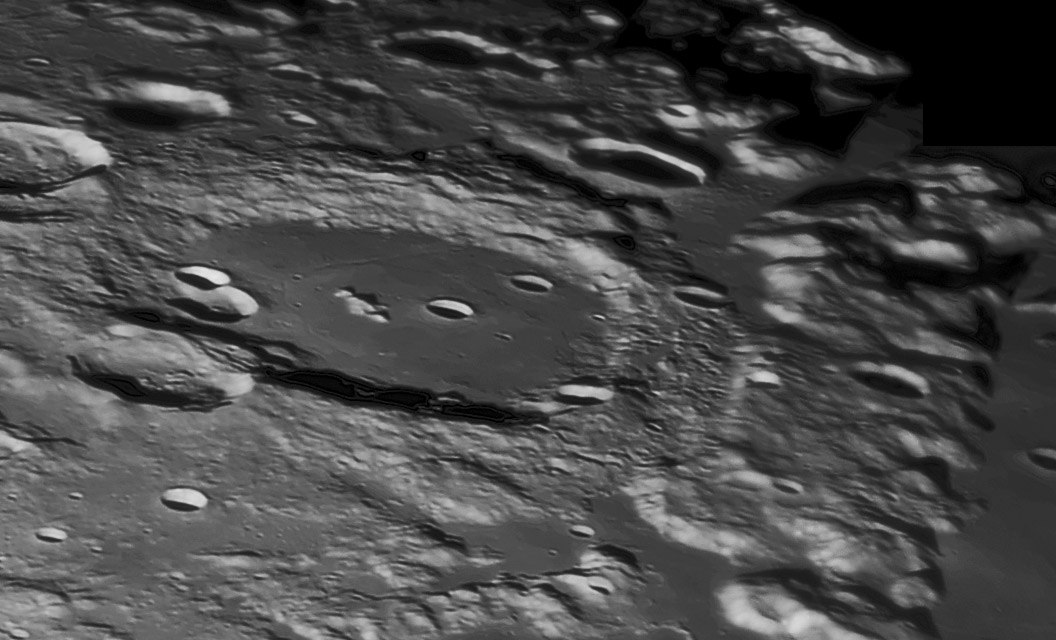October 2, 2009
Cleo 2

image by " rel="nofollow Wes Higgins, north to left
Cleomedes is one of the Moon's large and interesting craters, yet it is rarely imaged with enough resolution to depict its fascinating floor details. In 2004, Bruno Daversin used a 24" telescope to " rel="nofollow reveal its little known rilles and volcanic dark halo craters (DHC). And now Wes' mere 18" provides a lower Sun view of these features. The diagonal rille in the top-left part of the floor - labelled I in the Bruno image - and the more curved rille III at bottom-left, are both visible. The rille II that passes between the two craters Cleomedes B & J in the upper right quadrant of the floor is mostly invisible except for its northern end that joins rille I, and its extreme southern end that looks like a dark hair at the edge of the floor. The lower illumination hides the halos of the DHC, but all three between B & J reveal themselves as low shadow-casting ridges. What I like most about this view is how the southern (right) end of Cleomedes so clearly is superposed on the Crisium ejecta; also notice the difference in the texture of Cleo's rim and the more subdued ejecta. And see that the small bits of maria lap up and cover part of the rim. These observations allow us to establish a sequence of events from oldest to newest: Crisium Basin, Cleomedes, and mare fill. A final unusual feature is the eastern rim of Tralles, the 43 km wide crater that formed on the edge of Cleomedes' western rim. Because the Cleomedes rim gave away when Tralles formed, a massive slide of material onto Cleo's floor occurred and the eastern rim of Talles is lower than normal.
" rel="nofollow Chuck Wood
Technical Details
09-06-09, 8:26 to 8:38 UT. 18 Inch reflector, Infinity 2-1m camera, four frame mosaic from 4400 images, stack of 1425 frames, MAP 8,957 points.
Related Links
Rükl plate 26
This Cleomedes image is cropped from Wes' larger " rel="nofollow mosaic of the Mare Crisium area described in the Technical Details section.



